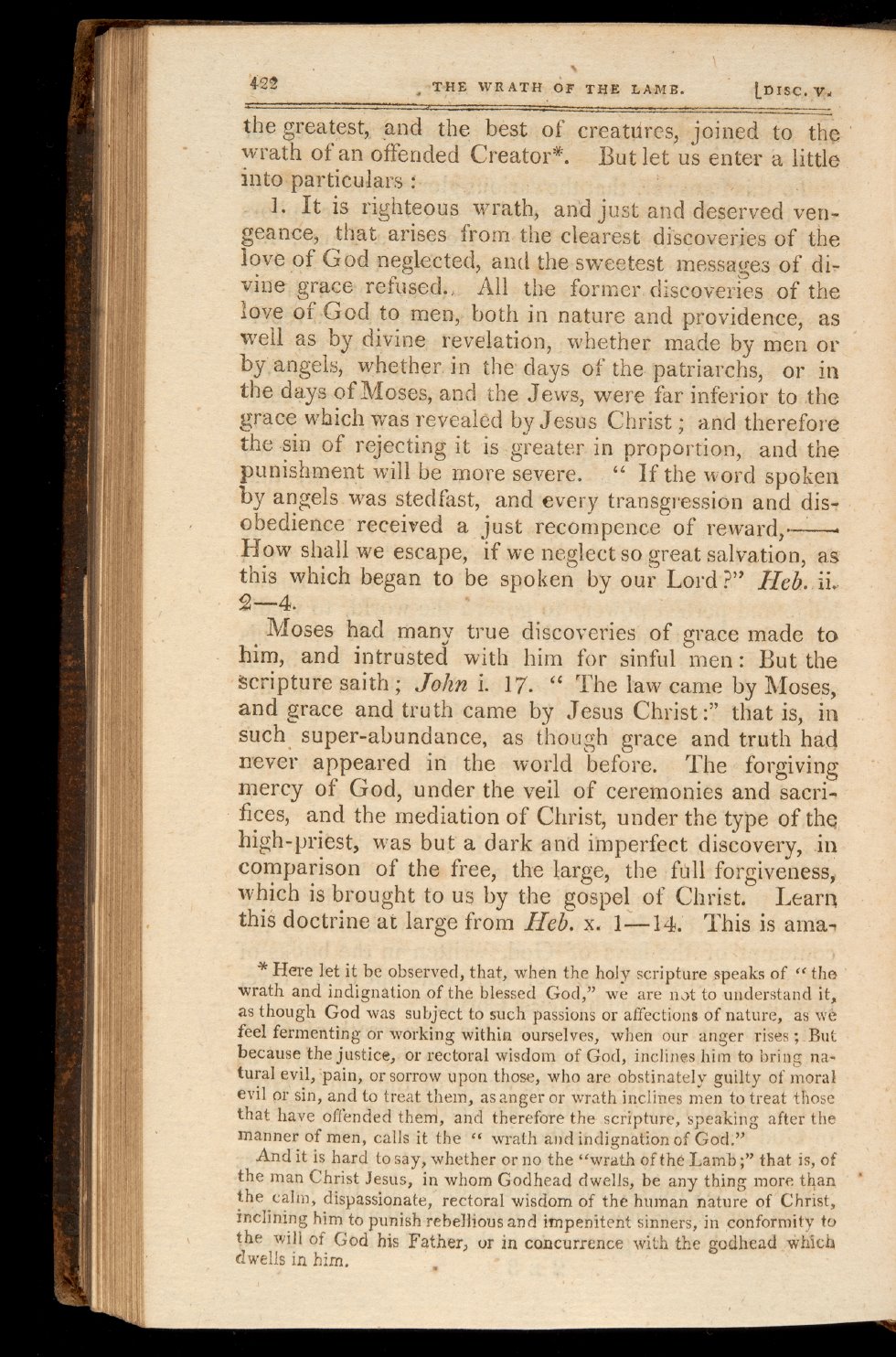

422
THE WRATH
OF
THE
LAMB.
inrsc.
V-.
the greatest, and
the best
of
creatures,
joined
to
the
wrath
of
an
offended
Creator
*.
But let
us
enter
á
little
into particulars
.
1.
It
is
righteous wrath,
and
just
and deserved ven-
geance,
that
arises from the clearest discoveries
of
the
love
of
God
neglected,
and
the
sweetest
messages
of
di-
vine
grace
refused.,
All
the former
discoveries
of
the
love
of
God
to
men,_
both
is
nature and providence,
as
well as by divine
revelation, whether made
by
men
or
by
angels,
whether
in
the days
of
the
patriarchs, or
in
the
days
of
Moses, and the
Jews, were far inferior
to
the
grace
which was
revealed
by
Jesus Christ
;
and therefore
the
sin
of
rejecting
it
is
greater
in
proportion, and the
punishment
will be
more
severe.
"
If
the word spoken
by
angels.
was
stedfast,
and
every transgression
and
dis-
obedience received a
just
recompence
of
reward,--.----
Vow
shall
we
escape,
if
we
neglect
so
great salvation, as
this
which
began to
be
spoken
by
our Lord
?"
Heb.
ii..
e
-4.
Moses had many
true
discoveries
of
grace made
to
him,
and
intrusted
with him for
sinful
men
:
But the
scripture
saith
;
Jahn
i.
17.
"
The
law
came by Moses,
and
grace and
truth
came
by
Jesus Christ
:"
that
is,
in
such
super
-
abundance,
as
though grace
and
truth
had
never appeared
in
the world
before.
The
forgiving
mercy
of
God, under
the
veil
of
ceremonies and sacri
-,
fices,
and
the mediation
of
Christ,
under
the type
of
the
high
-
priest,
was
but
a
dark
and imperfect
discovery, in
comparison
of
the free, the
large,
the
full forgiveness,
which
is
brought
to
us
by
the
gospel
of
Christ. Learn
this doctrine
at
large
from
Heb.
x.
1
-14.
This
is
ama,
*
Here let it
be observed,
that,
when
the
holy scripture speaks
of
"
the
wrath and indignation
of
the
blessed
God,"
we
are not
to
understand
it,
as
though God
was
subject
to
such
passions
or affections of
nature,
as
wiTé
feel
fermenting
or working
within ourselves, when our anger
rises
;
But
because the
justice,
or
rectoral
wisdom of
God, inclines him
to
bring na-
tural evil, pain, or
sorrow
upon
those, who are
obstinately guilty
of moral
evil or
sin,
and
to
treat them,
as
anger
or
wrath inclines men to
treat
those
that
have offended
them, and therefore
the
scripture, speaking after the
manner of men,
calls
it
the
"
wrath and indignation of
God."
And
it
is
hard
to
say,
whether
or no
the "wrath
of
the Lamb
;"
that
is,
of
the
man
Christ Jesus,
in whom
Godhead
dwells, be
any thing
more
than
the
calm, dispassionate, rectoral wisdom of the human nature of Christ,
inclining
him
to
punish rebellious
and impenitent
sinners, in conformity to
the
will
of God
his
Father,
or
in concurrence with the godhead which
dwells
in him.

















